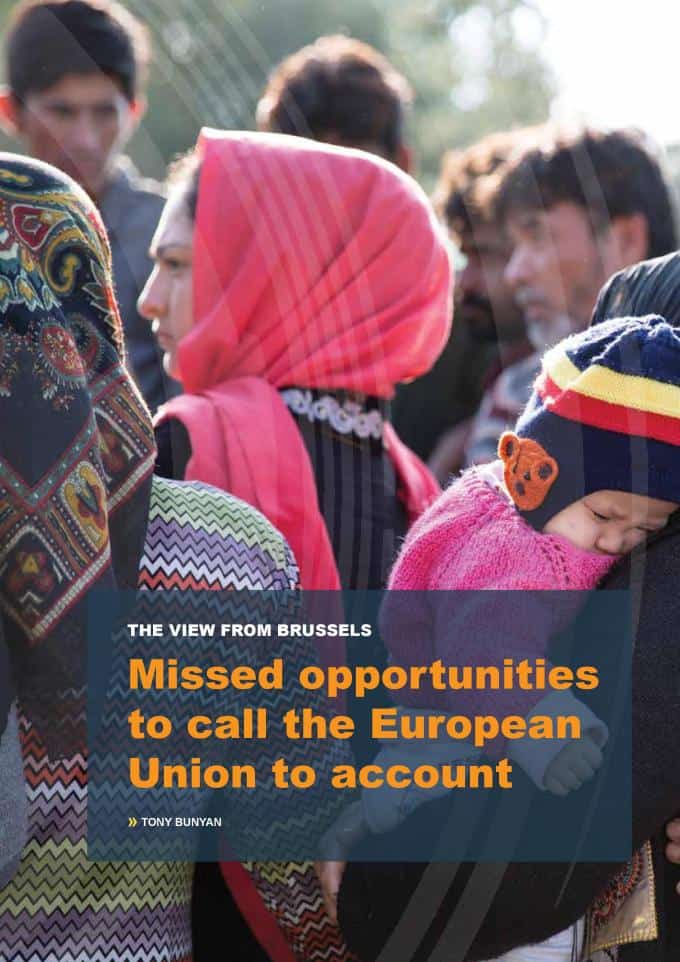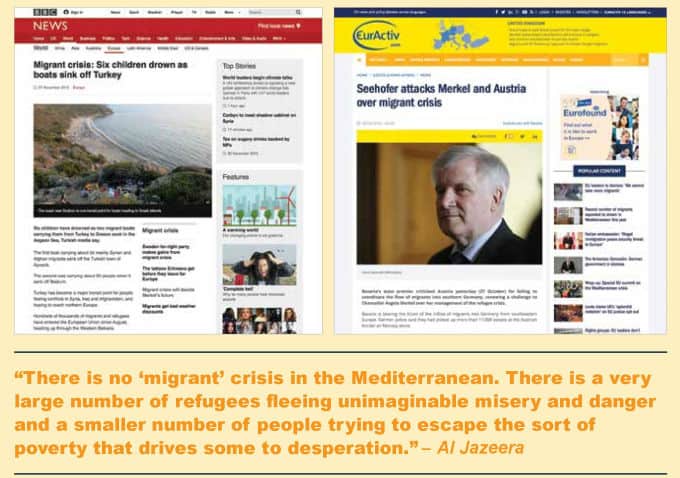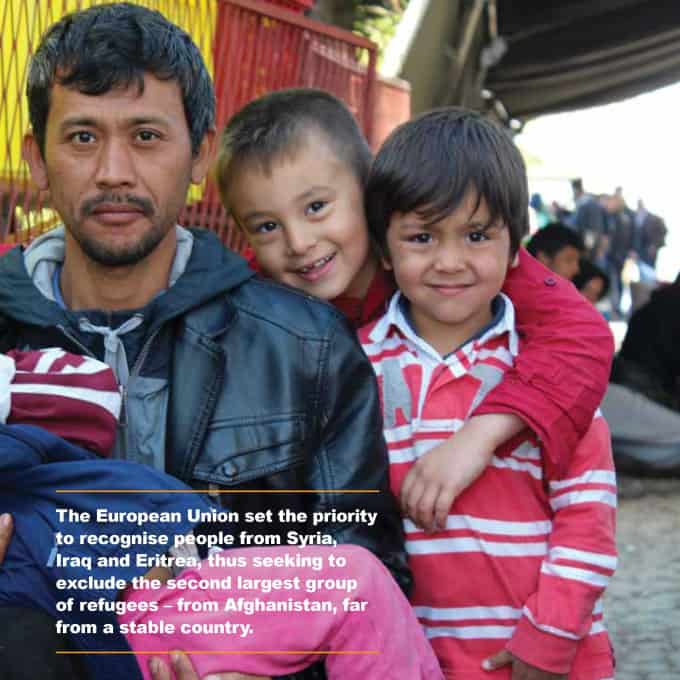Migration: Can Media Show Courage in the Face of Europe’s Political Cowardice?
 Aidan White
Aidan White
Europe’s political fright over migration has opened the door to a toxic public debate that means journalism faces a continuing uphill struggle to tell the story without a negative bias.
A meeting of policymakers and refugee support groups in London this week was told that the migration story is often low on fact-based information and high on bias.
Media often fail to properly explain the issues around whether European Union countries should welcome millions of refugees seeking refuge from war, poverty and fear. Instead, many media fall in with an intemperate public discourse dominated by politics of a particularly nasty kind — nationalist, bigoted and even racist.
The result is increasing public uncertainty and the creation, as Channel 4 journalist Matt Frei put it, “a huge moment of peril for the European Union.”
Frei, who is one of the few reporters able to focus on the complex sides to a story that has become a lightning rod for conflict in national and European parliaments, took the chair at the meeting organised by the UK’s Overseas Development Institute on Wednesday.
He was joined by Peter Sutherland, the United Nations Special Representative on Migration, who delivered a blunt message about the potential humanitarian and political disaster facing Europe over migration.
Sutherland is a big beast of international diplomacy and there’s no better man to have in your corner when fighting for global justice, but even his Irish charm could not disguise his frustration over the cowardice that has overtaken the political class in Europe in recent months.
He called for an urgent reversal of current policy on migration and a new public debate to combat populism.
He lacerated the three European prime ministers who say only migrant Christians not Muslims should be allowed into Europe, a policy that would “take us back 300 years”; he ridiculed plans to turn Greece into a giant holding pen for hundreds of thousands of migrants; and he poured scorn over “proximity policy” whereby European countries will pay billions to Turkey, Lebanon and Jordan, if they will stop Syrian refugees and others coming to Europe.
He said attempts by the European Commission in Brussels to agree a relocation plan for the orderly dispersal of migrants across the European Union never got off the ground and the Schengen Treaty, which established a borderless region across continental Europe, is on the verge of collapse and six countries have already reimposed border controls.

The resulting political paralysis has caused an information vacuum too often filled by intolerant voices. “Politicians like Hungary’s Viktor Orban and Donald Trump in the United States sell a nationalistic vision to their public on the basis of this inertia,” said Sutherland.
Political leaders, even inside major democratic parties, are increasingly fearful of losing voter support if they are seen to be “soft” on migration; they bend to public pressure even if it means reneging on international treaties and human rights commitments.
Only one, Angela Merkel, has bucked the trend, said Sutherland. Her plans to open the doors of Germany to a million or more migrants is a humane and positive alternative to wire fences and forced deportation, but as Sutherland noted, the backlash that followed showed that this had been a “moral vision with a political price.”
Nevertheless, the facts demand action, he says. European countries must take more migrants (at present 60 per cent of all refugees are hosted by 10 countries, most of them developing countries) and politicians must put an end to their toxic rhetoric.
The need for a new information strategy was also spelled out by another speaker, Fatumo Farah, an activist from the Netherlands, who welcomed the EJN call at the meeting for a more targeted information strategy.
She pointed to the growth of xenophobia in the Netherlands where, as in many other countries, refugees are seen as a threat.
But that may be easier said than done. As the recent EJN global report on reporting migration has noted, many of Europe’s mainstream media are already swimming with the political tide.
There is a tendency to sensationalise the impact of migration and to avoid looking at evidence that points to the financial, social, and humanitarian benefits of a common European Union approach.
 In the interests of journalistic balance, the story needs to be strengthened with more reliable research on economic and social realities and laced with a humanitarian focus on the plight of refugees and migrants themselves.
In the interests of journalistic balance, the story needs to be strengthened with more reliable research on economic and social realities and laced with a humanitarian focus on the plight of refugees and migrants themselves.
However, media are weakened by a poor economy and often lack the editorial capacity and time for adequate research to challenge the deceptive handling of the facts in the current political climate. In such conditions, the voices of the migrant community are often ignored and, worse, the volume of hate speech and intolerance is turned up.
But it will take professional courage as well as material support to help journalism. Media ethics demand that journalists avoid all forms of propaganda whether for or against migration, but good journalism requires telling the story in full, reporting all of the evidence, and reaching out to all sides. These are the benchmarks of quality journalism and should be the basis of all migration reporting even in the face of political or commercial pressure to say otherwise.
The EJN is calling for more support for media to expand the debate and to strengthen newsrooms. Without such support, particularly to small and local media, the migration story in Europe and elsewhere will continue to be dominated by unscrupulous politicians and their charmed circle of media friends.
Watch our director, Aidan White, ask the panel about how media can play a more constructive role in fostering a responsible debate on migration.
Listen to the author of the UK chapter of the report discuss how the British press have covered the migration story on The Media Show on BBC Radio 4.
Read the report below or download it here